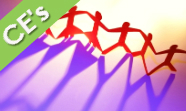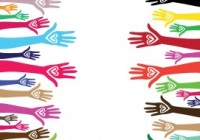This 90-minute Webinar with Dr. Lisa Firestone will introduce mental health professionals and individuals who struggle or know someone who may struggle with OCD to:
- What causes OCD
- The manifestations of OCD that are not often recognized
- The way OCD operates and the serious impact it has on people’s lives
- The most effective treatments for OCD
- Techniques individuals and therapists can use to effectively address OCD symptoms
Millions of people in the United States (around 1 in 40) are affected by obsessive compulsive disorder (OCD). Unfortunately, many people experiencing symptoms are not even aware that OCD exists or that treatment is available. When a person does seek help, a lack of OCD training for health professionals can lead to the wrong diagnosis.
OCD is described by the International OCD Foundation as a disorder in which people become stuck in a cycle of obsessions, “unwanted, intrusive thoughts, images or urges that trigger intensely distressing feelings,” and compulsions, “behaviors an individual engages in to attempt to get rid of the obsessions and/or decrease his or her distress.”
When a person has OCD, it’s as if the alarm system in their brain is faulty, trapping them in a hyperaroused state. They experience irrational or disturbing thoughts, and they engage in compulsive actions to relieve their anxiety and uncertainty. This is because a part of the brain that is designed to protect them by warning them of danger is being triggered too frequently and can be thought of as “lying” to the person about potential threats.
For many people suffering, sometimes silently, with the symptoms of OCD, it can come as a huge relief to be educated about what OCD is, how it operates, and what they can do to conquer it. The good news is extremely effective, very specific treatments for OCD exist. These treatments differ from traditional talk therapy and can be life-changing for people affected by this disorder.
Learning Objectives:
- Discuss the neurological process experienced by individuals with OCD
- List symptoms of obsessive-compulsive disorder
- Explain the use of an effective technique for reducing OCD symptoms
- Summarize the treatment methods found to be effective with OCD
Presenter: Lisa Firestone, Ph.D.
Price: $15 (CE’s not included)
90 Minutes
$15.00Add to cart
Optional 1.5 CE Credits sold separately More Info Here
Ordering Information:
Once payment is received, you will be e-mailed a full video recording of this Webinar along with all presentation materials.
Optional CEs (1.5) may be purchased through R. Cassidy Seminars for $10. A link to purchase CE credits will be included in the email containing all your Webinar resources. More Info Here
About Lisa Firestone
 Dr. Firestone is the Director of Research and Education at The Glendon Association and a Senior Editor at PsychAlive. An accomplished and much requested lecturer, Dr. Firestone speaks at national and international conferences in the areas of couple relations, parenting, and suicide and violence prevention. Dr. Firestone has published numerous professional articles, and most recently was the co-author of The Self Under Siege: A Therapeutic Model for Differentiation (Routledge, 2013), Sex and Love in Intimate Relationships (APA Books, 2006), Conquer Your Critical Inner Voice (New Harbinger, 2002), and Creating a Life of Meaning and Compassion: The Wisdom of Psychotherapy (APA Books, 2003).
Dr. Firestone is the Director of Research and Education at The Glendon Association and a Senior Editor at PsychAlive. An accomplished and much requested lecturer, Dr. Firestone speaks at national and international conferences in the areas of couple relations, parenting, and suicide and violence prevention. Dr. Firestone has published numerous professional articles, and most recently was the co-author of The Self Under Siege: A Therapeutic Model for Differentiation (Routledge, 2013), Sex and Love in Intimate Relationships (APA Books, 2006), Conquer Your Critical Inner Voice (New Harbinger, 2002), and Creating a Life of Meaning and Compassion: The Wisdom of Psychotherapy (APA Books, 2003).
Continuing Education Information:
This event is co-sponsored by R. Cassidy Seminars. A link to purchase CE credits will be provided to all Webinar registrants.
Satisfactory Completion
Participants must have paid tuition fee, signed in, attended the entire seminar, completed any accompanying reading assignment, completed an evaluation, and signed out in order to receive a certificate. Failure to sign in or out will result in forfeiture of credit for the entire course. No exceptions will be made. Partial credit is not available.
Psychologists
Cassidy Seminars is approved by the American Psychological Association (APA) to offer continuing education for psychologists. R. Cassidy Seminars maintains responsibility for this program.
Social Workers
Cassidy Seminars, ACE provider #1082 is approved as a provider for social work continuing education by the Association of Social Work Boards (ASWB) www.aswb.org, through the Approved Continuing Education (ACE) Program. Approval Period: April 15, 2012-April 15, 2015. R. Cassidy Seminars maintains responsibility for the program. Social workers should contact their regulatory board to determine course approval. Social workers will receive 1.5 homestudy continuing education (clinical, social work ethics) clock hours in participating in this course.
Please Note: Licensing Boards change regulations often and while we attempt to stay abreast of their most recent changes, if you have questions or concerns about this course meeting your specific board’s approval, we recommend you contact your board directly to obtain a ruling.
Note: Many state boards accept offerings accredited by national or other state organizations. If your state is not listed, please check with your professional licensing board to determine whether the accreditations listed are accepted.








 Dr. Firestone is the Director of Research and Education at
Dr. Firestone is the Director of Research and Education at 









